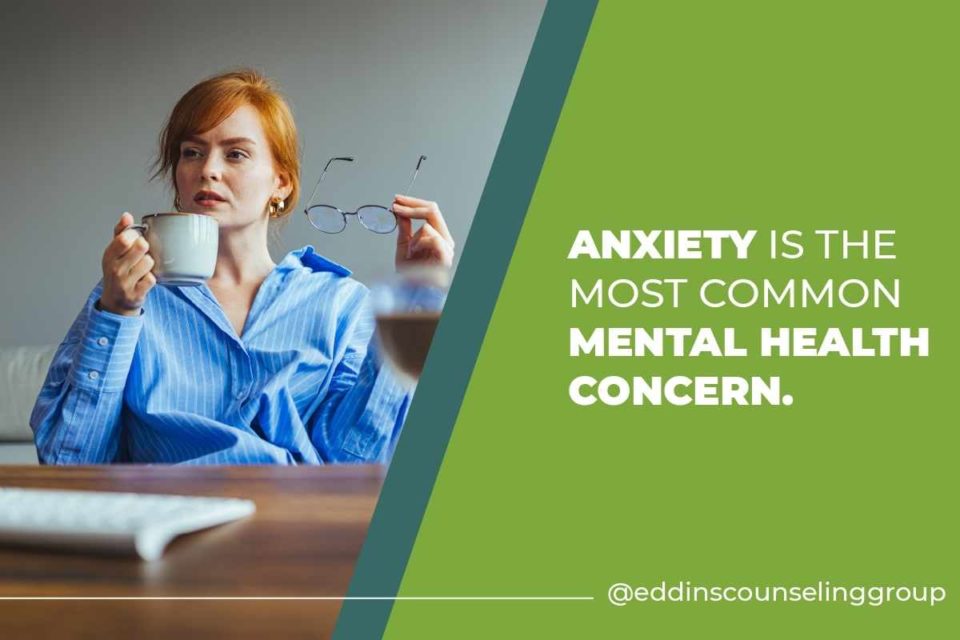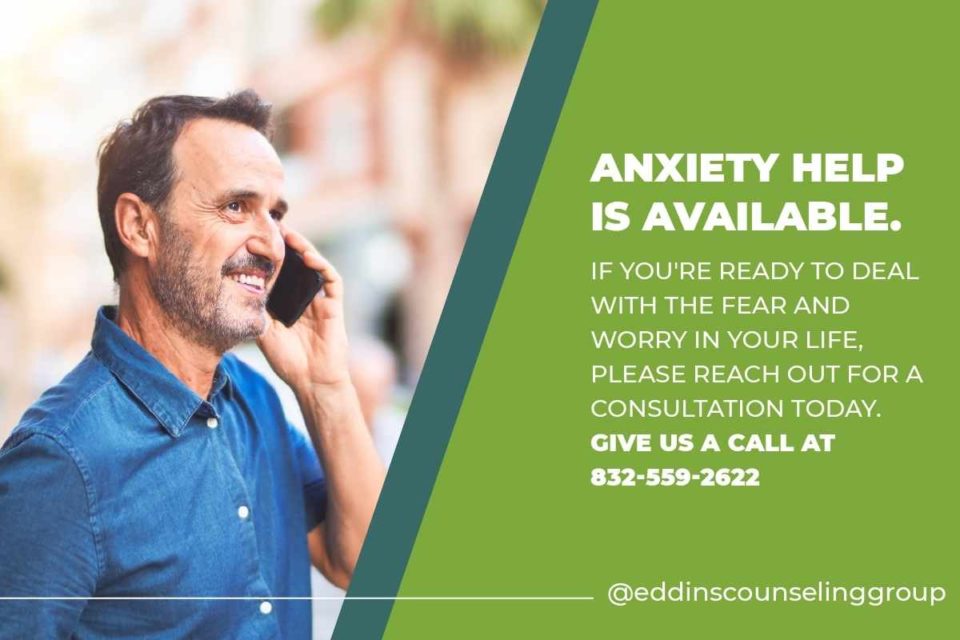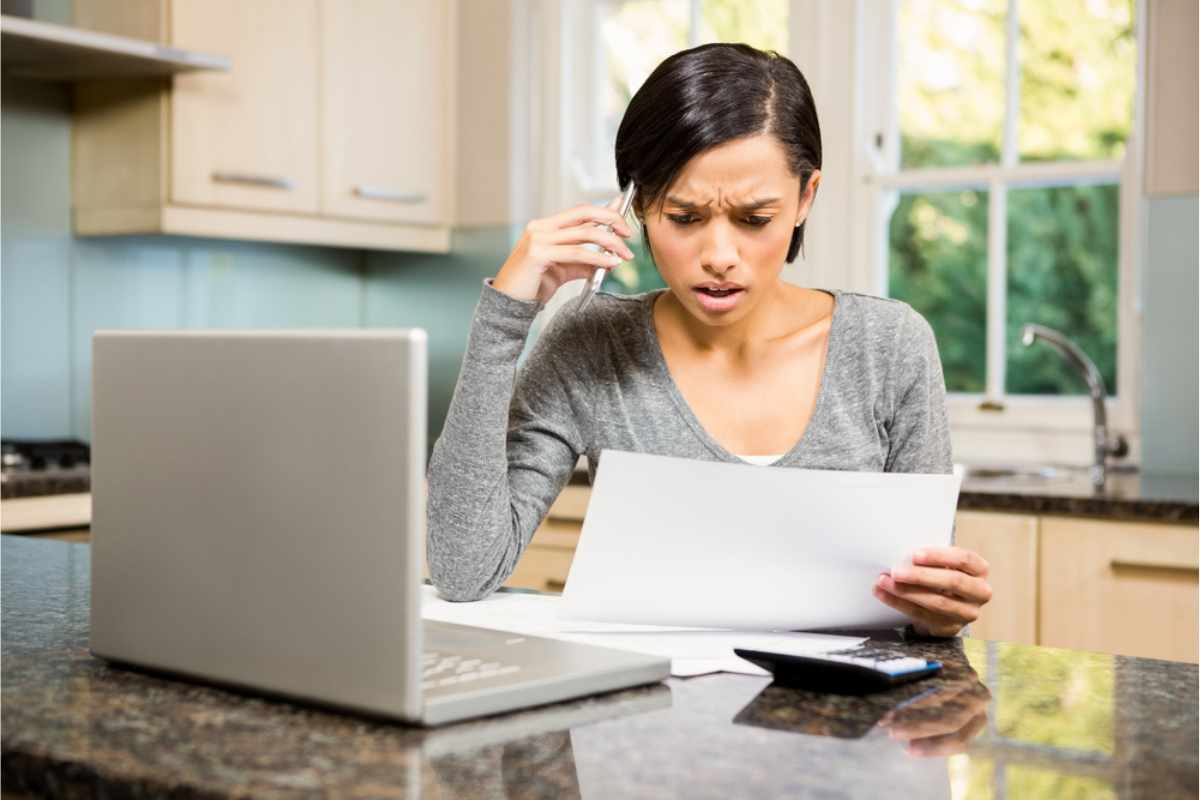March 4, 2019
Do I “Have Anxiety”? 5 Signs Your Anxious Feelings Are an Anxiety Disorder
Written by Rachel Eddins
Posted in Anxiety and with tags: OCD, PTSD/Trauma, Panic Disorder, Social Anxiety, generalized anxiety disorder
 Do I have anxiety? Have you wondered that lately? First, do understand that everyone feels anxious or worried—at least a few times a day. However, there’s a huge and very important difference between inevitable anxious moments and having a diagnosable anxiety disorder.
Do I have anxiety? Have you wondered that lately? First, do understand that everyone feels anxious or worried—at least a few times a day. However, there’s a huge and very important difference between inevitable anxious moments and having a diagnosable anxiety disorder.
Feeling anxious is temporary and can often alert us to a situation that warrants our immediate attention. An anxiety disorder requires our attention, but in an entirely different way.
What is an Anxiety Disorder?
It is a mental health condition that falls into five main categories:
- Generalized Anxiety Disorder
- Obsessive-Compulsive Disorder (OCD)
- Panic Disorder
- Post-Traumatic Stress Disorder (PTSD)
- Social Phobia (or Social Anxiety Disorder)
Each category can present with its own unique symptoms. However, what these disorders do have in common is fear, worry or anxiety intense enough to interfere with your daily activities.
Also, anxiety disorders are far more common in females and among those who are divorced or widowed.
Other risk factors include:
- A history of mental disorders in close biological relatives (especially anxiety and especially in parents)
- Exposure to traumatic and stressful events (particularly in childhood)
- Financial scarcity and struggle
- Childhood shyness
Anxiety disorders can be self-diagnosed, yet often the light bulb moment occurs only after someone close to you inquires about a specific pattern of behavior you display.
Do you have symptoms of anxiety? Anxiety is the most common mental health concern. Take this self test and find out if anxiety could be impacting your life.
Do I Have Anxiety?…5 Signs Your Anxious Feelings Are an Anxiety Disorder
1. Excessive and Irrational Fear, Worry, Self-Consciousness, and Avoidance
This is a foundational sign. As mentioned above, there are bound to be expected moments of anxiety. For some, however, the anxiety becomes the norm. It’s almost as if we’re “stuck” in this setting and it no longer matters what the source is. Thus, we do whatever we can to avoid it.
2. Particular Physical Symptoms
Among many others, these symptoms may include muscle tension, sleep disturbances (too much or too little), and issues with digestion. What’s crucial here to recognize connections. Thus, if you experience physical symptoms with no obvious cause, you may wish to keep a journal. By tracking such episodes, you can discover if there’s a link to anxiety or panic attacks.
3. Obsessive Thinking and Compulsive Behaviors
We all have patterns and many of these patterns serve us well. But what does it mean when patterns morph into rituals? There are pop culture simplifications of Obsessive-Compulsive Disorder (OCD) but there’s more to it than that. So, if you find your obsession and/or compulsion interfering with daily functions, it best to get some advice.
4. Panic Attacks and/or Flashbacks
These are two of the far less ambiguous symptoms. Flashbacks, in general, involve a replaying or reliving of traumatic events—re-experiencing the emotions you felt at the time. Furthermore, flashbacks can lead to a panic attack. Moreover, if you’ve endured or witnessed a panic attack, you know it presents as a palpable form of extreme anxiety.
5. Perfectionism, Stage Fright, and Self-Doubt
As an offshoot of irrational fear and obsessive thinking, you can reach a point of metaphorical paralysis. If your self-doubt is so high that the “safest” choice is to do nothing. If you don’t take a risk, you can’t embarrassingly fail.
So, Your Anxious Feelings Are an Anxiety Disorder – Now What?
“Do I have anxiety,” you asked.
If you learned that the answer is likely “yes”, your first reaction might be more anxiety. This is understandable. Let those initial emotions settle, it’s important to know that help is available.
There are many treatment options—including medication—but many people have found quick and sustainable relief through individual counseling. For example, cognitive behavioral therapy (CBT) is an effective and widely-used therapy for anxiety disorders.
Generally, you may be able to diagnose yourself your own. However, for healing, it’s beneficial and suggested that you seek help from a therapist.
Finally, if you’re ready to deal with the fear and worry in your life, please reach out for a consultation today. At Eddins Counseling Group, in Houston, TX we have many experienced therapists that specialize in anxiety treatment. Give us a call at 832-559-2622 or book an appointment online. Or, consider online anxiety therapy.
5 Ways to Reduce Anxiety
Get instant access to your free ebook.
Grounding & Self Soothing
Get instant access to your free ebook.
Create Healthier Thoughts & Feelings
Get instant access to your free ebook.
Why You Feel This Way
Get instant access to your free ebook.


















